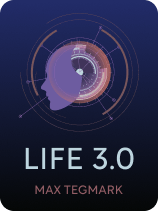
What’s a post-scarcity society? Can AI create a perfect society?
A post-scarcity society is a theoretical concept in which the production of goods outweighs the demand, meaning minimal labor is needed and goods are nearly free. In his book Life 3.0, Max Tegmark theorizes that AI could bring this concept to life.
Discover how AI might create a post-scarcity society.
AI Protects Humanity From AI
Tegmark imagines a scenario in which humans create an artificial superintelligence with the sole purpose of preventing other superintelligences from coming into existence. This allows humans to continue developing more advanced technology without worrying about the potential dangers of another AI.
(Shortform note: This scenario is arguably relatively unrealistic, as it assumes that we have total control over the superintelligence yet aren’t taking full advantage of its power. If we’re able to successfully program a superintelligence’s goal, we would likely get more ambitious and tell it to design a society for us in which we can be eternally happy and immortal—which would bring us back to one of the previous two optimistic scenarios we’ve discussed.)
According to Tegmark, the advanced technology humans could develop in a world free from superintelligence would eventually allow us to create a post-scarcity society. Robots are able to build anything humans might want, making scarcity a thing of the past. Since robots are constantly generating surplus wealth, the government can give everyone a universal basic income (UBI) that’s high enough to purchase anything they could possibly need. People are free to work for more money, but finding a productive job is near-impossible since everything people might buy is already given to them for free.
(Shortform note: Tegmark also acknowledges the possibility that we develop superintelligence, manage to keep it entirely under our control, and use it to create a humanist utopia. Although he doesn’t specify what he imagines this world would look like, it’s reasonable to assume that Tegmark thinks it would mirror the outcome of one of these three positive scenarios.)
| How to Transition to a Post-Scarcity Society Becoming a post-scarcity, UBI-driven society like this would require a complete overhaul of our employment-based economy. But, we wouldn’t necessarily have to enact this kind of sweeping change all at once. AI expert Lorenzo Pieri describes how a nation might incrementally transition to this kind of society. First, the private companies that serve basic human needs progressively automate their workforces with increasingly sophisticated technology, boosting the nation’s total economic production. As existing taxes channel some of this new wealth into the government, they pass it on to citizens as a small universal basic income. The government grows this UBI alongside the economy as a whole, helping everyone increase their quality of life—especially those in poverty, whose currently unfilled needs are more essential to their well-being than the unfilled needs of people with more money. After private companies have automated the production of all basic human needs, the government begins funneling the wealth from the automated production of non-basic goods into subsidies for basic goods rather than further increasing UBI. Eventually, the government can use the productivity gains from automation to pay private companies to supply all basic human needs for free, transitioning into a fully post-scarcity society. If citizens desire non-basic goods that aren’t available for free, they still can get jobs producing such luxury goods for others. Pieri terms this dynamic “luxury-capitalism.” |

———End of Preview———
Like what you just read? Read the rest of the world's best book summary and analysis of Max Tegmark's "Life 3.0" at Shortform.
Here's what you'll find in our full Life 3.0 summary:
- That an artificial intelligence evolution will make us the simple lifeforms
- The evidence that artificial superintelligence might soon exist
- Whether or not we should be alarmed about the emergence of AI






